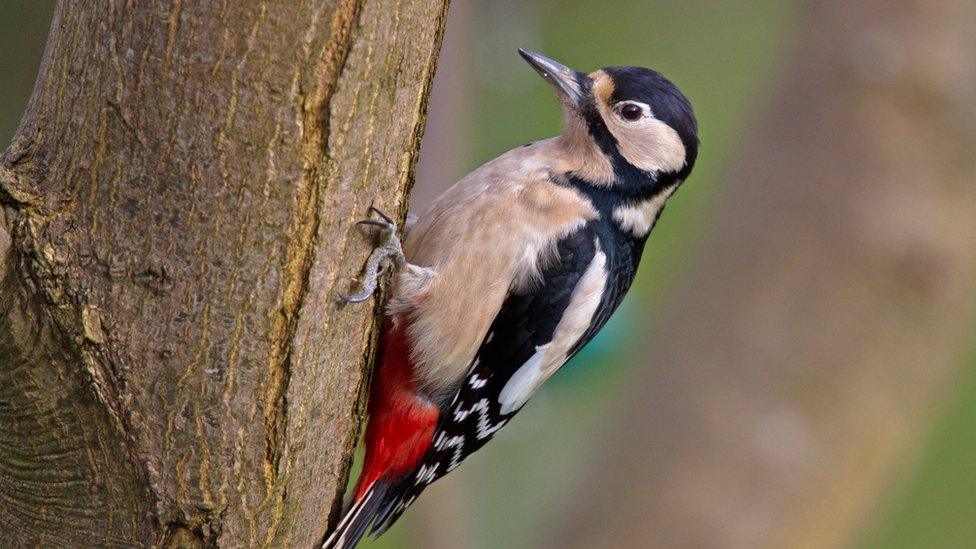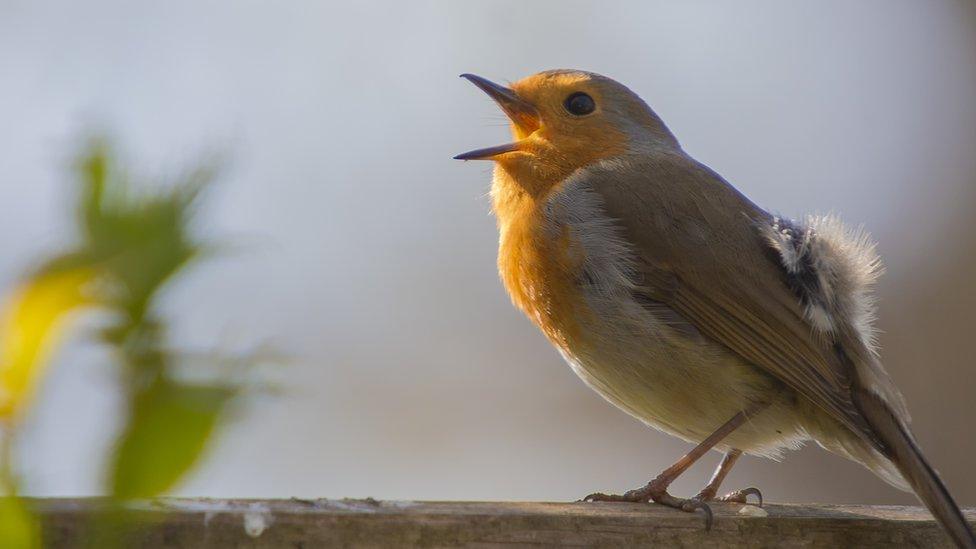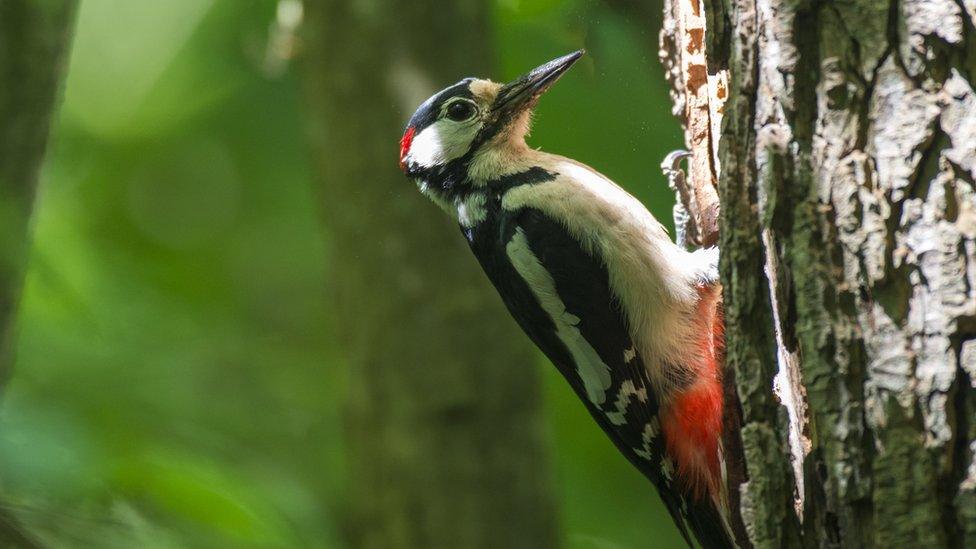Woodpeckers: Scientists find out why woodpeckers peck
- Published
- comments

Scientists in America have discovered why woodpeckers carry out the distinctive behaviour we know and love them for.
If you've been lucky enough to spot one, you'll know they often sit on the trunk of a tree and peck at it, making a drumming sound.
But until now, scientists didn't really know why.
The discoveries they have made in a new study has helped experts learn more, not just about woodpeckers, but also about the way birds have evolved (changed over time) in general.

Scientists around the world have been studying how birds communicate for decades and this research is a big breakthrough!
Scientists at Brown University wanted to understand why woodpeckers carry out this particular behaviour.
They came up with a theory - scientists call this a hypothesis - that woodpeckers' pecking is controlled by the same part of the brain where singing is controlled in songbirds.
They confirmed this hypothesis after researchers found evidence of specialised gene expression in the brains of woodpeckers, similar to what's found in brains of songbirds.
A gene contains DNA and carries the information that makes us who we are.
These cells can specialise for different functions - which is what is meant by the term specialised gene expression.

The research suggests woodpeckers' drumming may have evolved through vocal learning, which is the same way that songbirds learn to make their own way of talking!
So while songbirds tweet to attract a mate or scare off a rival, it seems woodpeckers make the drumming sound to do the same!
It's the first time scientists have found specialised gene expression in the brain of a bird that doesn't sing - they also looked at emus, penguins and flamingos!
The author of the study, Matthew Fuxjager, said the research was "really exciting" because nobody has ever been able to find any evidence in the brain for their behaviour.
Why is a woodpeckers drumming so important?
There are more than 200 species of woodpecker around the world.
Each one drums at a different speed and rhythm which changes depending on what they're trying to communicate and who they're trying to communicate with.
If the pecking is wrong in any way, other woodpeckers of the same species won't be able to understand it.
It's kind of like language for us - if you don't know Spanish, you will struggle to understand someone speaking Spanish to you!

There are more than 200 species of woodpeckers in the world!
What do these findings mean for the future?
These findings have helped scientists understand the parts of the brain that control vocal communications in birds, both those that sing and those that don't.
The scientists say it opens up more questions about how these characteristics have evolved, whether it's only happened in woodpeckers and did the evolution of bird song - or in this case bird drumming - happen further back in evolutionary history.
- Published21 September 2022

- Published21 September 2022

